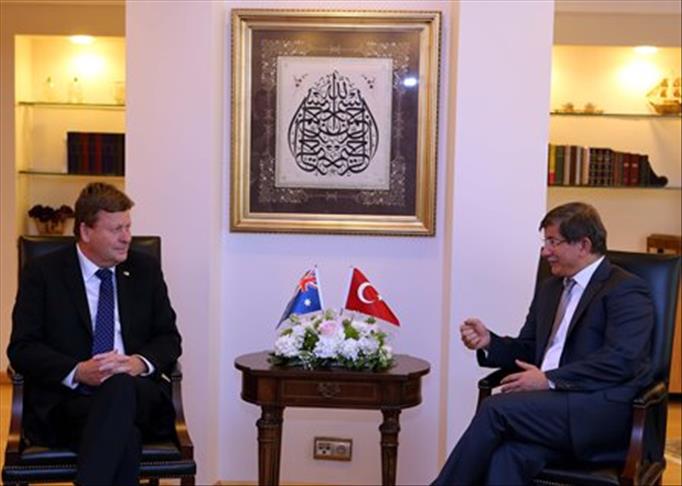
By Satuk Bugra Kutlugun
ANKARA
Among the many great wars in Turkey's long history, one of the fiercest battles of all times, the Battle of Gallipoli during the First World War holds a special place, not only in the Turkish nation's heart, but also in those of other nations as well.
The Battle of Gallipoli was a First World War campaign that took place in Gallipoli peninsula during the Ottoman Empire between 1915 and 1916. Under the command of the British Empire, Australian and New Zealander soldiers formed an alliance called ANZAC - an acronym for Australian and New Zealand Army Corps. Their aim was to capture the Gallipoli peninsula in order to open the Dardanelles to allied navies. Their ultimate objective was to capture Istanbul, the capital of the Ottoman Empire.
After ANZAC's soldiers were exposed to Ottoman Turkish resistance, the war fell into a stalemate and the campaign lasted for eight months. The extended offensive caused tens of thousands of casualties from both the Australia and New Zealand side, which eventually led to an Ottoman victory under the leadership of Colonel Mustafa Kemal, who would later be known as Father of the Turks (Ataturk) and become the founder of modern Turkey.
Anzac Day, the 25th April, which marks the first day of the campaign, became a national day of remembrance in Australia and New Zealand that broadly commemorates all Australians and New Zealanders who served and died in all wars, conflicts, and peacekeeping operations.
Speaking to Anadolu Agency in an exclusive interview, Michael Ronaldson, Australia's Minister for Veterans' Affairs and the Minister assisting the Prime Minister for the Centenary of ANZAC, said the freedom Australian, New Zealanders and Turks enjoy today came with a "huge price and we must never ever forget that."
The minister hailed the current Australia-Turkey ties, and said the two countries have "an extraordinary relationship".
"We were enemies a hundred years ago, but today we are the best of friends, this reflects very much the maturity of the two countries," the minister added.
Ronaldson pointed out that the situation was different in 1915 but it never was a matter of hatred.
"We should never forget that those young Australians and New Zealanders that were going up the cliffs of Gallipoli did not hate the men at the top," said Ronaldson. "They did not know them. The men at the top, the Turks, did not know those men who were coming up the cliffs. So, this was not a battle fought out of hatred, but it was a battle of circumstances."
To commemorate the 99th anniversary of the campaign, thousands of Australians and New Zealanders have already flocked to Turkey.
For next year's centenary, Ronaldson said there would be commemorative events from the smallest towns to the largest of cities across Australia.
"The centennial mark of Anzac Day is an opportunity for us not just to commemorate the sacrifice of hundreds of years ago, but actually an opportunity for us to teach children that the freedom they enjoy today is as a result of the sacrifice of others, be it Turks, New-Zealanders or Australians. The freedom these young people enjoy today was paid for in blood and we must never ever forget it," said the minister.
Ronaldson also spoke on the scope of the Veteran Affairs Ministry's work. He said that there is a natural decline in Second World War veterans, but the ministry provides a recuperation program to look after the mental health of young Australians who have returned from Iraq and Afghanistan.
"There are many young Australians who have served overseas since 1999. We have some real challenges but our recuperation system looks after those young men and women and their families," Ronaldson said.
Russell Crowe's movie "The Water Diviner" which was shot in Turkey in 2014, and tells the story of a New Zealand father who searches for his two sons in 1919, who went missing in battle in Gallipoli in 1915, gives an opportunity for the two nations to tell their story very well, Ronaldson says, adding that "we understand the enormous losses that both nations suffered."
"We lost a generation of young men, a generation of young Turks, Australians, New Zealanders," said the minister.
englishnews@aa.com.tr


